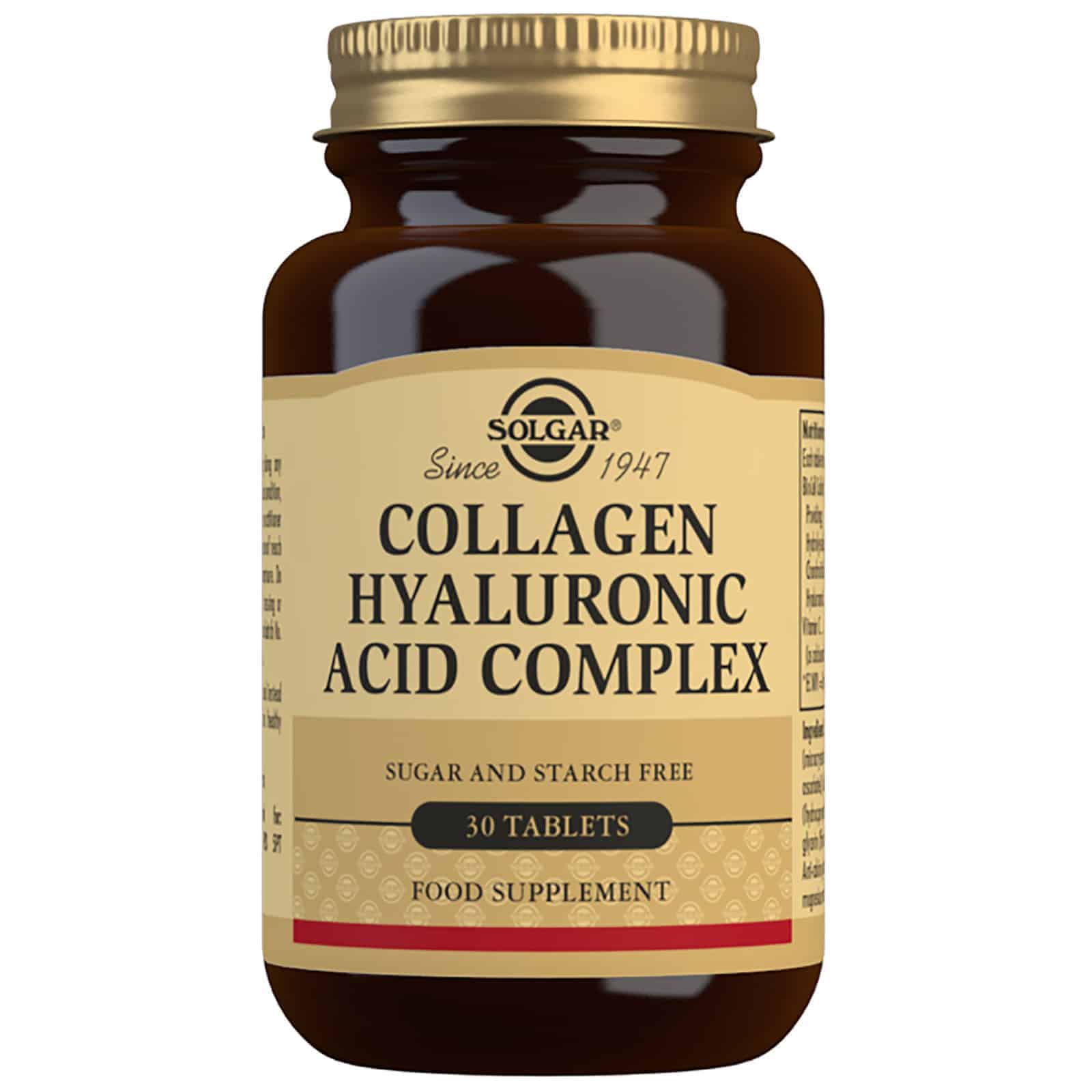Solgar, Hyaluronic Acid Complex, 30 Tablets, For Hydration of Tissues and Joints
Brand: Solgar
€ 62,27
Hyaluronic acid is a high molecular weight polysaccharide that has an exceptional ability to bind to water molecules and stimulate the exchange of substances in tissue cells.
Vitamin C contributes to the normal formation of collagen for the normal function of bones and cartilage, as well as the skin.
| Quantity | Discount | Discounted price |
| 3 - 4 | 3% | € 60,40 |
| 5 - 9 | 5% | € 59,15 |
| 10+ | 10% | € 56,04 |
Secure shopping
- 14 days return for all orders
- Pharmacy rating 4.7 on TrustPilot
- GLS delivery to the EU
- Delivery countries: (AT) Austria, (BE) Belgium, (BG) Bulgaria, (CZ) Czech Republic, (DE) Germany, (DK) Denmark, (EE) Estonia, (ES) Spain, (FI) Finland, (FR) ) France, (GR) Greece, (HR) Hrvatska, (HU) Hungary, (IE) Ireland, (IT) Italy, (LT) Lithuania, (LU) Luxembourg, (LV) Latvia, (MC) Monaco, (NL) Netherlands, (PL) Poland, (PT) Portugal, (RO) Romania, (SE) Sweden, (SI) Slovenia, (SK) Slovakia
Hyaluronic acid mucopolysaccharide with very large molecules consisting of repeating disaccharide units. Disaccharide units consist of N-acetylglucosamine and glucuronic acid.
Hyaluronic acid plays an important role in tissue hydration and joint lubrication. It got its name from the Greek word "hyalos" which means glass - because of its appearance.
Hyaluronic acid is found in the synovial fluid, which has the function of lubricating the joints. Hyaluronic acid is found in connective tissues, it is necessary for the formation of a matrix that enables the division and migration of cells, it also plays a role in transmitting signals between cells. It is also responsible for skin elasticity.
Hyaluronic acid has an essential role in maintaining normal joint function. It is found both in cartilage and in synovial fluid. It maintains viscoelastic properties in the synovial fluid. During the inflammatory process, increased degradation of Hyaluronic acid occurs due to the creation of degradative enzymes or reactive oxidation groups, and thus the viscoelastic properties of the synovial fluid decrease.
The importance of hyaluronic acid in cartilage lies in its role in maintaining structure by forming aggregates with proteoglycans that are essential for joint function. Up to 10% of cartilaginous glycosaminoglycans are hyaluronic acid. A significant fact is that Hyaluronic acid can bind large amounts of water (1000 times its weight).
In osteoarthritis, the molecular weight and concentration of hyaluronic acid decreases, which reduces the viscoelastic properties of the joint fluid.
In addition to joints, it has also been used in cosmetics since the 80s. Due to its water-binding properties, it has proven to be an excellent raw material for use in cosmetics to slow down changes in the skin that occur with aging (loss of moisture and elasticity).
With age and inflammatory processes, the amount of hyaluronic acid that is naturally found in joints and other tissues decreases.
People who wear out their joints more, active athletes and regular recreationists also need to replenish hyaluronic acid in the form of a dietary supplement.
Since it has tissue hydration properties, taking hyaluronic acid in the form of a dietary supplement also has a beneficial effect on the appearance of the skin.
How to use
1 tablet daily with a meal.
Ingredients
| ingredients: | in daily dose (1 tablet) | PU *% |
|---|---|---|
| BioCell Collagen II® Extract | 1200 mg | |
| which contains | ||
| Hydrolyzed collagen Type II | 720 mg | |
| chondroitin | 192 mg | |
| Hyaluronic acid | 120 mg | |
| Vitamin C (calcium ascorbate) | 100 mg | 125 |
* recommended daily intake
Packaging
30 tablets.
| Brand | |
|---|---|
| Place of application | |
| Form | |
| Packaging |

